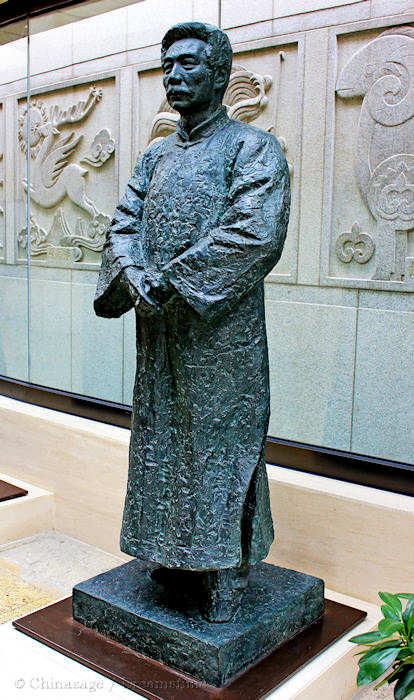Modern Chinese History
China's Neighbors The countries that surround China have an interesting history. Wars, conquest and religion have defined the current boundaries of the Peoples' Republic. India, Russia, Pakistan, Myanmar and Afghanistan all have important borders with China. Read more…
Superpower China An in-depth overview of the position of China in the world and its likely future. Is China on track to become the leading world super-power as it once was? For thousands of years China was by any measure the top nation on Earth, and so it seems natural that after 150 years of turmoil China will become the leading country again. We speculate on what this might mean to China and the rest of the world. Read more…
Righteous Fists 1898-1901 The Boxer rebellion came in the final, faltering stage of the Qing dynasty. Dowager Empress Cixi used the widespread hatred of foreigners taking unfair advantage of China's weakness to support the grassroots revolt. It did not end well. Read more…
The building of China's railways The building of railways became a competitive scramble in the late 19th and early 20th century. Railways were seen as the key step to opening up inland China for trade. Britain, France, Germany, Japan and America all invested heavily in railway construction only for the the money to be lost in the following years of turmoil. Read more…
4th May 1919 The Chinese reaction to the Versailles Treaty was the major turning point in modern Chinese history. Widespread student protests throughout the country led to a change in government policy and a refusal to sign the treaty. It was a nationalist movement calling for solidarity against foreign exploitation that was eventually to lead to a militarized Guomindang as well as the foundation of the Chinese Communist Party. Read more…
Understanding the Date and Time in Chinese Telling the date and time is essential for travelers. In China the Arabic numbers are used for writing but the Chinese characters are used for reading. Read more…
Chinese Tortures China since early Imperial times has had a system of brutal punishments for crime. Torture was routinely used to extract a confession and there was no defense attorney to help you. For high treason a particularly gruesome and painful death was devised - death by a thousand cuts. Even today China uses the death penalty more frequently than the rest of the world put together. Read more…
Relations between Korea and China A history of the long and eventful history of Chinese relations with Korea. Chinese settlement first began two thousand years ago and at times since then China has intervened in Korean affairs, most recently in the Korean War 1950-53. Read more…
The early history of China from pre-history to 770BCE Most of the ancient traditions of China had become established 3,000 years ago. The institution of Emperor, the written scripts and the key technologies (including silk) all come from China's distant past. The longevity and continuity of Chinese culture are the two key principles to understanding China - even today. Read more…
Chinese coolies 1845-1880 When African slavery was made illegal in the UK and US, employers turned to China for supply of labor. The conditions were just as appalling as for the Africans. A technicality allowed employers to claim this was not slavery but Chinese were bought at markets and had little chance of returning home. This little known trade began in 1845 and lasted about 35 years before the Chinese and some foreign governments put a stop to it. Read more…
Plum The plum is one of the earliest trees to flower and this often coincides with Chinese New Year. It is considered one of the three friends of winter for this reason. As a symbol it represents long life as the tree is long lived and takes many years to come to flower. Read more…
Quintessence of the Nation Traditional Chinese Opera was the entertainment of all Chinese over many centuries. A long evening performance contains elements of drama, music, comedy, acrobatics and martial arts. Each region has its own distinctive form. Over time complex body movements represent specific meanings as a very sparse set is used. The art form has inspired many Western composers and playwrights to emulate the style. Read more…
